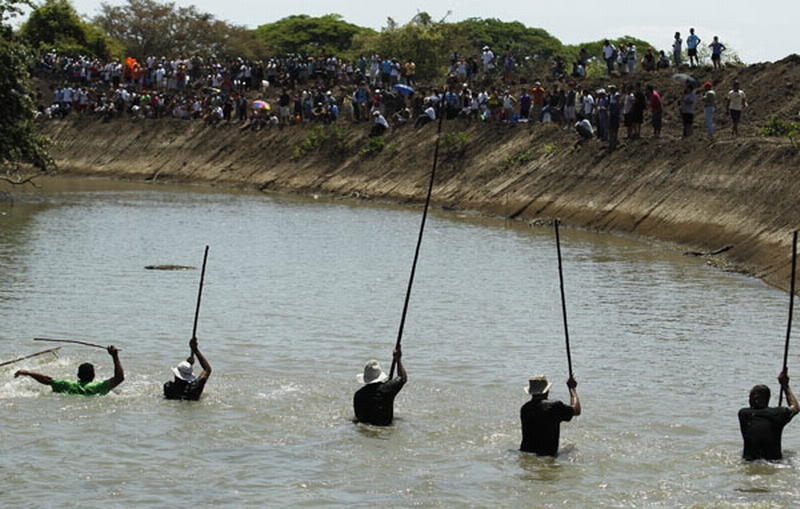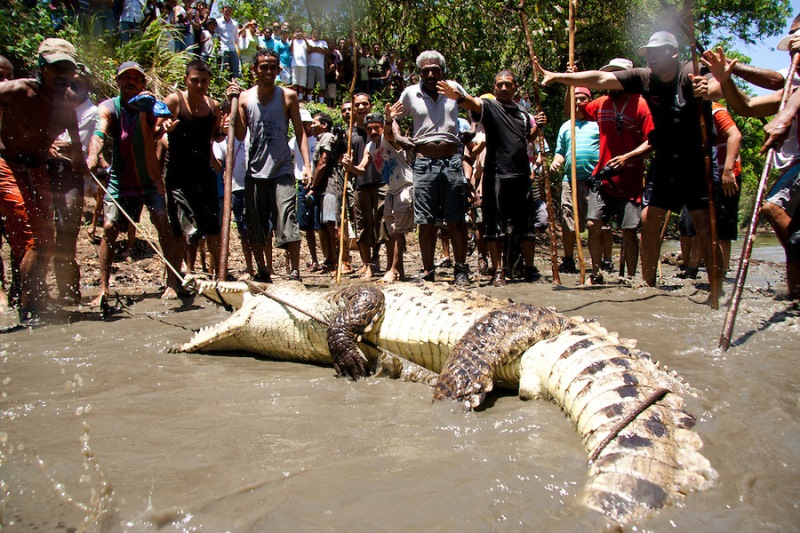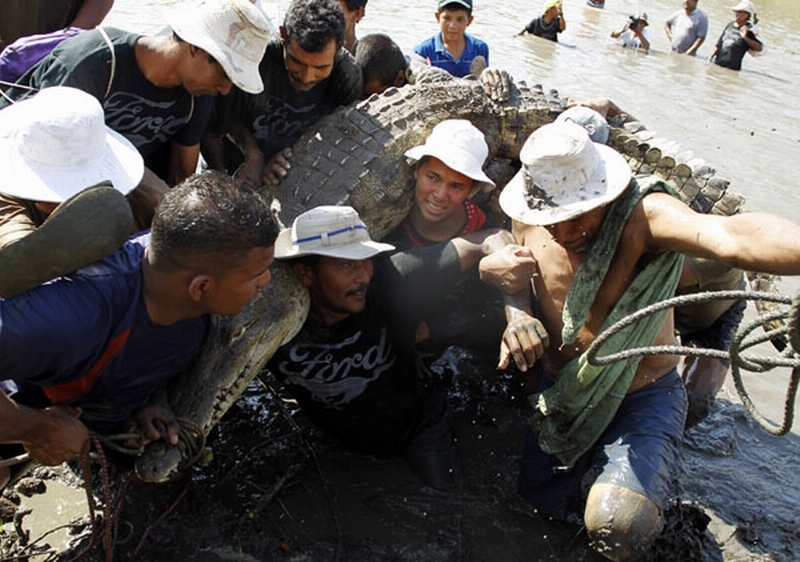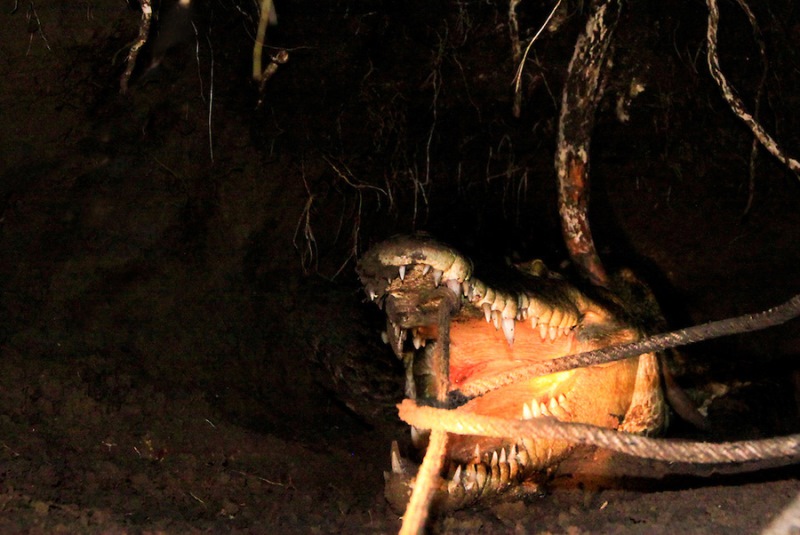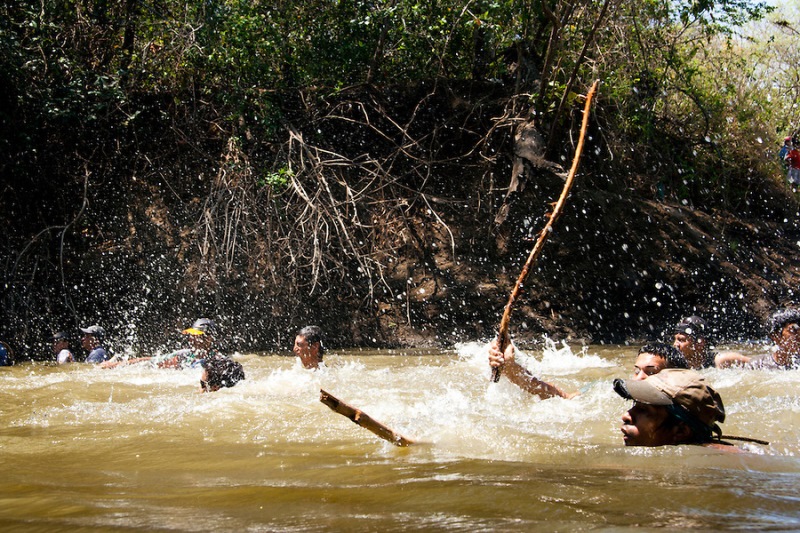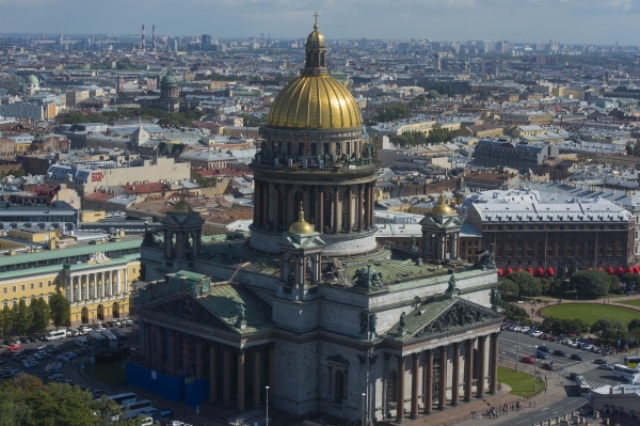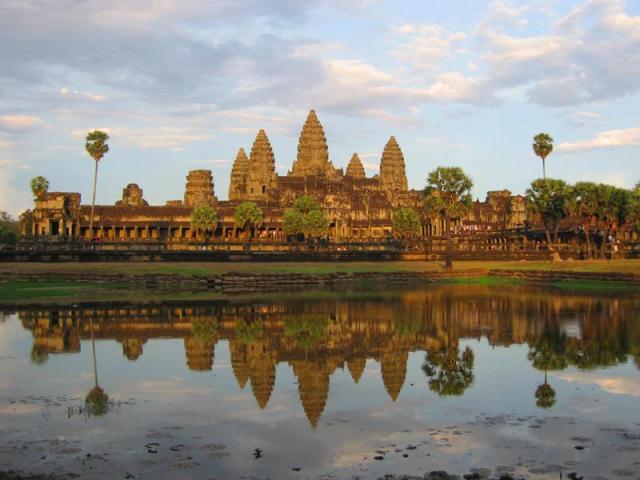How to hunt crocodiles in Costa Rica
No guns, harpoons and ingenious game adaptations. Only long sticks, some ropes and three dozen brave men. Today we tell about traditional Costa Rican hunt for some of the most dangerous predators of the planet.
Starting traditional Easter hunt small inhabitants of the Costa Rican village of Ortega on one of the most ferocious predators wildlife surprisingly devoid though any hint of ceremonial. No more colorful folk costumes, war paint on their faces hunters, musical accompaniment and dance – it’s awesome event starts surprisingly humdrum. So, if three dozen men of all ages and only to those involved that several times a day catch toothy reptiles. Only a string of local residents and visiting tourists, stretching for thirty daredevils going with some sticks, ropes and an old fishing net to the muddy waters of the river La Palma hunt live killing machine, hints at what is about to begin something really important and grandiose.
Turbid water in the river – it is difficult to consider something drifting even a meter away from you. And considering that in La Palma on another crocodile kilometer distance, the river looks more intimidating and by his appearance hints that go into it – shaped folly that can provide Darwin Award nomination. Waters adds danger of people here and standing in this time of year horribly hot, dry weather – shallow river, becoming more turbid and dangerous reptile in such weather only become active, moving briskly through the water and at every opportunity to attack. Traditional hunting crocodile through the prism of such facts acquires thriller features one hundred percent, if not a horror movie. But worry more viewers, especially among tourists, hunters themselves retain absolute calm, except that the focus on their faces gives recognition of the fact that they have to catch even five-foot baby and a huge adult was in full blossom.
At the river catchers prehistoric reptiles are divided into two groups. The first covers the fishing channel network. The second is moving away at a distance of one kilometer from the first (all that distance plastered with spectators along the shore) and fearlessly descends into the murky water, every inch of which can become a risk. This – beaters, their task is to move slowly toward straddling network that is urine beating sticks on the water surface. The strategy is simple and clear: reptile, funky aggressive and noisy intrusion into their habitat, retires from the beaters and goes to the network. Here are just a tricky thing not just almost unchanged lives and reigns in the tropical waters tens of millions of years – ensnared the crocodile was not in a hurry. Bank of the river La Palma literally dotted with numerous natural caves and passages, of which conveniently hunt crocodiles and they cleverly hide when they themselves are being hunted.
So, the network is not exposed to catch a cold-blooded predator in them, but simply to cut off his escape route, do not let go and drive into one of the natural shelter. When this is done, the events reach their maximum dramatic glow: a giant deadly reptile from its shelter need to smoke. That is, to cross the line when cornered and frightened superior enemy predator no choice other than attack the full might of its natural weapons. When you see how the smoke perfect killer of his lair, it becomes really uncomfortable.
Braves number of beaters almost from head to cover the five-meter crawl crocodile shamelessly jerking of driftwood. Their only insurance – comrade, ready to quickly pull the hunter’s leg, if something goes wrong. But usually all goes according to plan, and after two or three hours long ordeal predator pokes out of hiding its toothy jaws, which already waiting catcher with a simple tackle – a long stick with a loop at the end. Its simplicity is compensated by professional skill: one quick movement – and muzzle crocodile strapped tightly with rope. As you know, this jaw killing machines only merge with monstrous power, but in order to keep them in the closed position, enough arm strength and the common man, or, as in this case, a simple rope. Hear the cries of the water: “We got him! We got him! “.
But even without its main weapon crocodile remains a serious enemy that all the power of his torso twists in the water and actively operating a tail. And hunters have to take it literally with his bare hands. So even with the utmost care – from the shore in effect was observed not only for tourists and locals, but officials from the Ministry of Environment is following so that animals were harmed. To crocodiles in Costa Rica special attitude: for hunters, there are strict quotas and weight limitations of the execution which officials should seriously. Here people even make friends with the crocodile , it happens. Therefore, the safety of life is a prerequisite for predator hunting Easter village residents Ortega.
Hunters simply stronger knotted rope on the jaws of a predator, bear his massive body on his shoulders and the enthusiastic cheers of the crowd carry him to the village. With absolutely happy, happy faces. Two crocodile coming days will live in a special enclosure in the village, giving an opportunity for everyone to enjoy themselves, after which he will return. This fact allows us to make the assumption that the ritual hunt in these places is concerned with symbolic gratitude crocodiles, which for centuries fishing was an important fishery, giving the skin and meat of the villagers. Have to assume, because the people themselves Ortega simply do not know how and why the Easter tradition was born catching predatory lizard – this time immemorial engaged in their grandfathers, then their fathers, and tomorrow it will be engaged in their children already, which will give the forgotten history of the tradition with the next generation .
